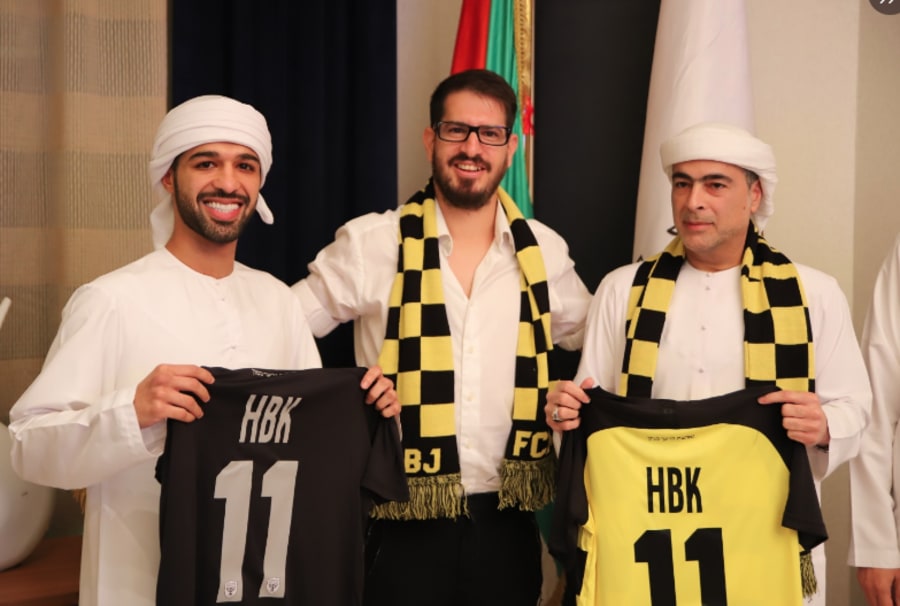Emirati businessman reportedly interested in buying Jerusalem soccer with right-wing fan base

JERUSALEM – An Emirati businessman is reportedly looking into buying Jerusalem’s premiere soccer club – a team famous for its right-wing fan base that has reacted violently in the past against signing Arab or Muslim players.
Sheikh Hamad bin Khalifa Al Nahyan, a member of the United Arab Emirates royal family, has expressed his interest in buying half of Beitar Jerusalem, a soccer club whose home field is the Israeli capital’s iconic Teddy Kollek Stadium.
Jerusalem Mayor Moshe Lion, who is an Orthodox Jews, has warmly endorsed the potential sale reported to be around $100 million including a cash payout, investments – presumably in infrastructure in and around the stadium – as well as advertising and promotions.
But definite opposition and maybe even violence is expected from some hardcore fans of the club, which has long been associated with the extreme right wing of Israel’s political spectrum.
Jonathan Regev, a correspondent from i24 TV, said that when the previous coach expressed interested in bringing two Muslim players from Chechnya to the team, fans reacted violently, vandalizing the club’s facilities. This and other incidents have created a reputation for anti-Arab racism associated with Beitar.
The UAE is no stranger to controversy and pushback regarding its sponsorship of sports teams. Starting in the late 1990s, UAE-based businesses interested in becoming global brands began buying advertising billboards in and around stadiums housing some of Europe’s most popular teams. This soon led to TV commercials and later internet broadcasts of games, followed by UAE-based companies buying European sports teams outright.
Today, several of the largest and most popular clubs in European leagues are owned by business interests in the Persian Gulf including AC Milan, Arsenal FC, Olympiacos FC, SL Benfica and Real Madrid, all of which are owned by UAE businesses including one of the world’s largest commercial airlines, Fly Emirates.
Some sports leagues in dozens of countries around the world are sponsored in whole or in part by Gulf-based companies.
With so many precedents, Israelis can see for themselves the costs and benefits they will derive from having one of the most well-known Israeli sports clubs owned in part by a Gulf country business.
Meanwhile, many other clubs are sure to be watching closely to see how the notoriously loyal Beitar Jerusalem fans react to the planned acquisition of 50% of their club by a foreign owner, and whether such a deal would be worth it for their own interests.
“If that kind of money comes into Beitar Jerusalem, maybe even the most diehard racist fans will be able to think twice,” Regev said.

The All Israel News Staff is a team of journalists in Israel.














